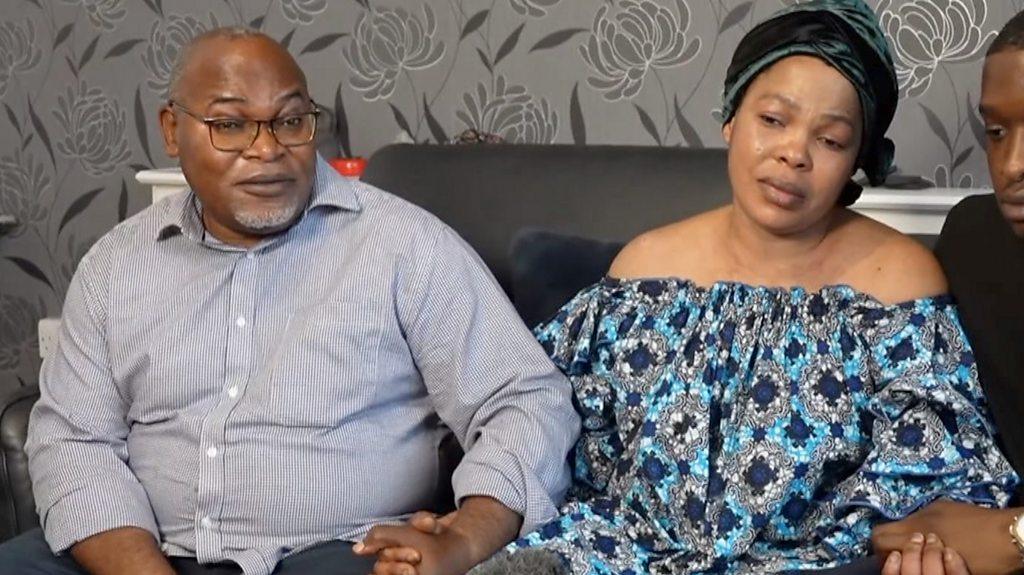Families demand justice over police killings
- Published
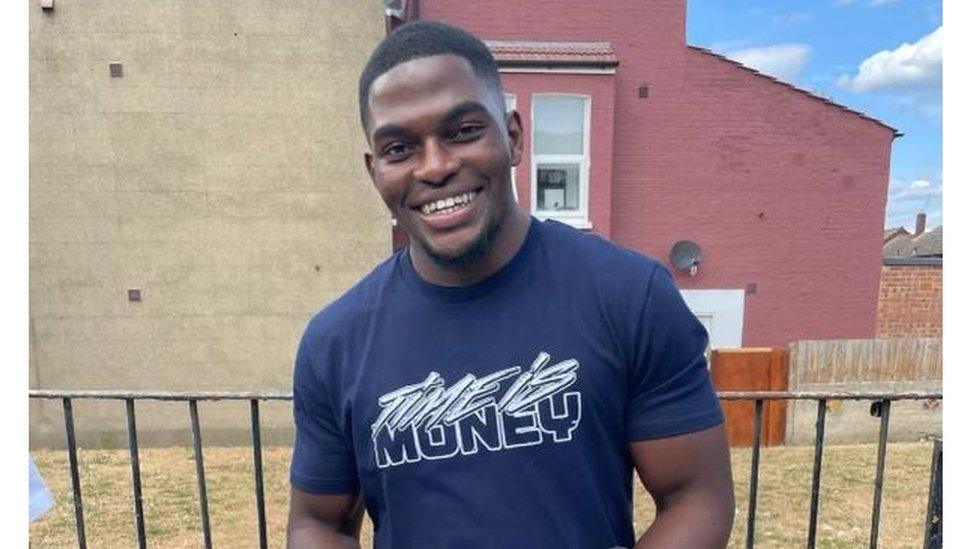
Chris Kaba was due to become a father when he died
Families of people killed by police are calling for an urgent meeting with Prime Minister Rishi Sunak, to demand justice for their loved ones.
In a letter to the PM, the families of Chris Kaba and Oladeji Omishore, who died after a confrontation with the police, demand that the officers involved in their death be charged.
The families also want meetings with London mayor Sadiq Khan, and Home Secretary Suella Braverman.
The government has yet to respond,
Mr Kaba, 24, was shot following a car pursuit that ended in Streatham on the night of 5 September.
The Metropolitan Police has suspended the officer who shot Mr Kaba, but the family has criticised the length of time it took for this to happen, accusing the force of racism.
The Independent Office for Police Conduct (IOPC) are still investigating Mr Kaba's death.
Mr Omishore, 41, died after being pulled from the River Thames having been tasered by officers.
The deaths sparked "outrage and anger across all communities" according to the families' open letter to Rishi Sunak.
"We demand an end to state killings, and the systematic patterns and failures within the judicial process that follow the death of a loved one caused or contributed to by agents of the state," it says.
"As prime minister, you and your government are ultimately accountable for these deaths."
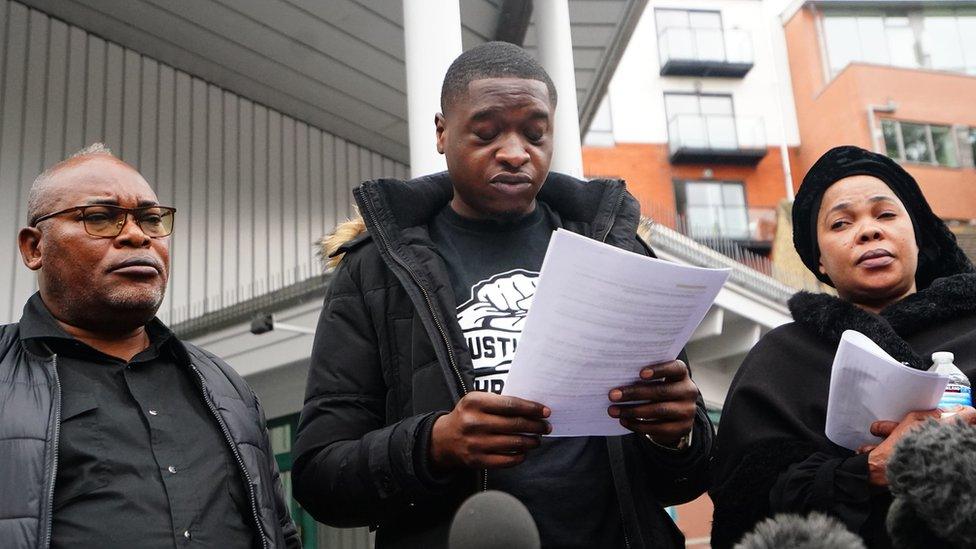
Chris Kaba's family at his inquest last month
The letter is written by the The United Families & Friends Campaign (UFFC), which is a national coalition of those affected by deaths in police, prison and psychiatric custody.
The group was initially a network of black families but over recent years it has expanded and now includes the families and friends of people from varied ethnic and cultural backgrounds.
The UFFC is calling for officers involved in custody deaths to be suspended until investigations are completed and prosecutions should automatically follow "unlawful killing" verdicts.
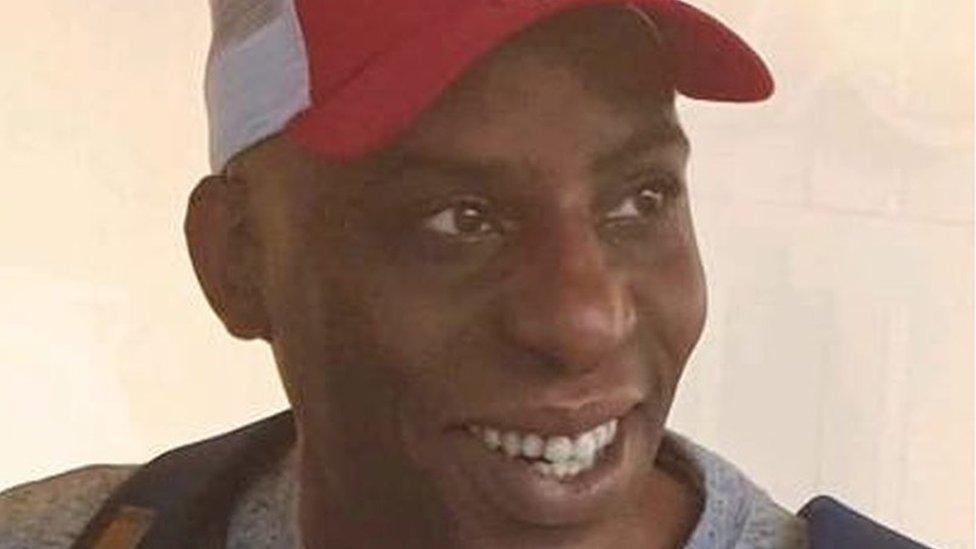
Oladeji Omishore, 41, faced struggles with his mental health, his family says
In a statement released in June, Mr Omishore's family expressed concerns about how police had handled the situation when he was "clearly suffering from a mental health crisis and he was vulnerable and frightened".
The IOPC has previously confirmed that Mr Omishore had been tasered more than once - but said there is so far no indication the officers involved had breached police professional standards or committed a criminal offence.
The open letter signed by both men's families calls into question the independence of the IOPC and the use of tasers and force on vulnerable people.
- Published22 June 2022
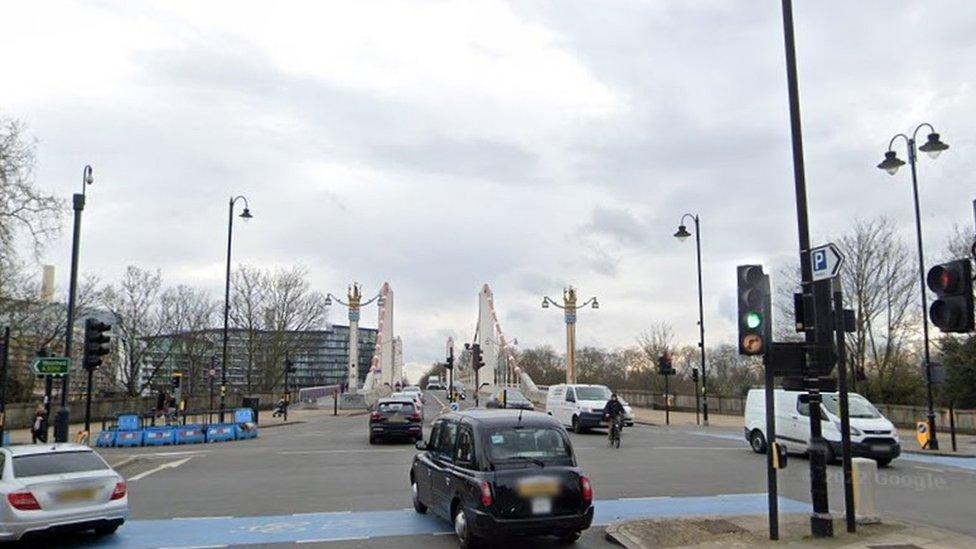
- Published12 September 2022
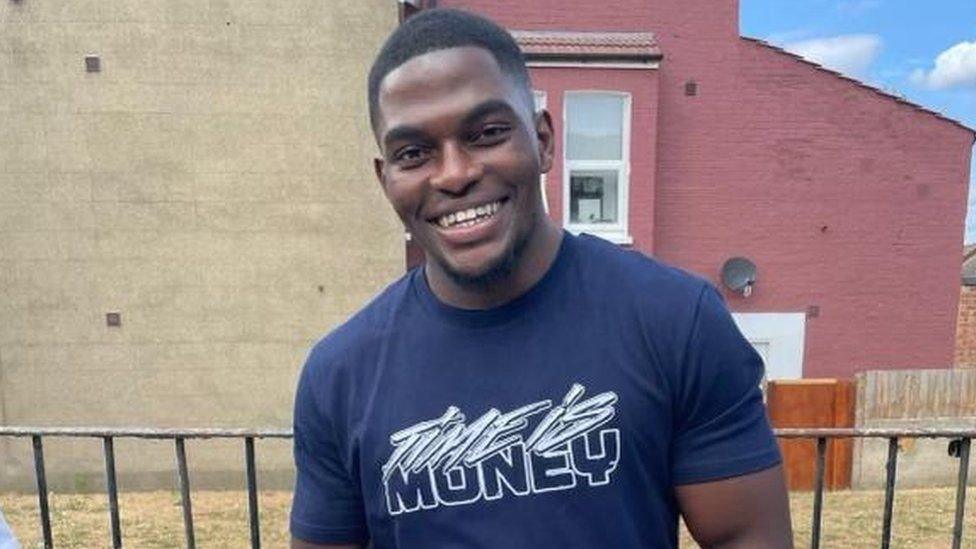
- Published7 September 2022
